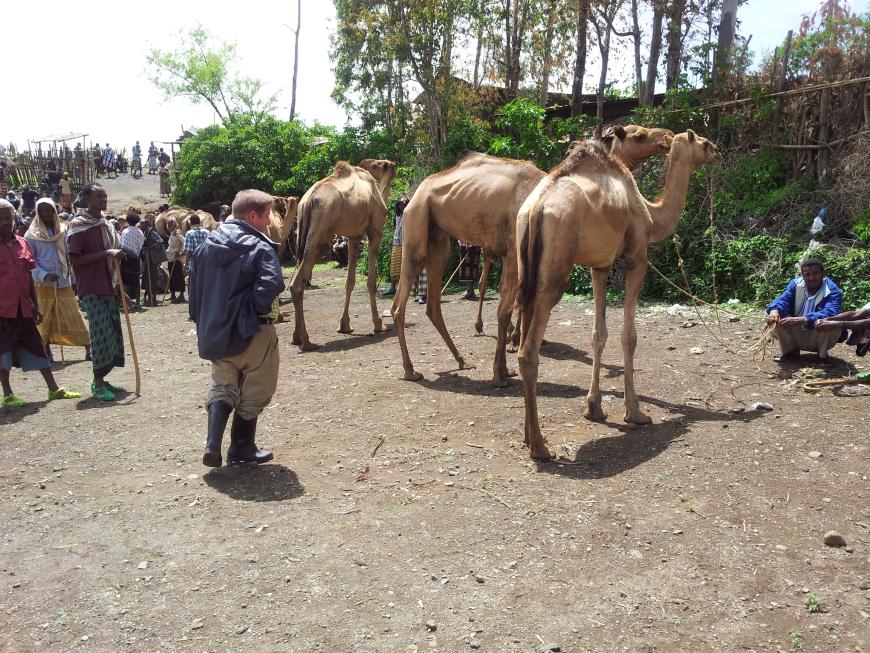It is people, not laws, that drive privacy. In this first column of a series exploring “Privacy through Time and Space” Bailiwick Data Protection Commissioner Brent Homan discusses why privacy is more than just a compendium of laws. Privacy has a deep historical and philosophical foundation that has shaped, over time, the principles and rights that we embrace today.

For this tale let me take you back to 2013 when I was just starting my new role in the privacy world. And I will caveat this story with a cautious admission - before I became a privacy regulator, I didn’t really know a lot, or think too much, about the notion of privacy. At that time, I was an economist who had cut his teeth in the fast-paced and frantic world of anti-trust. But heck, this privacy thing did seem like an interesting blossoming field and a fun change of pace, so let’s give it a go!
As it so happens, in the summer of that year I was fortunate enough to accompany my niece Rachel Homan, who as a champion curler (yes – that rocks, brooms and ice sport) was also a ‘good will ambassador’ for the Canadian Hunger Foundation. The mission involved a journey to Northern Ethiopia to engage in community development work. It had absolutely nothing to do with my new privacy day job…. or so I thought.
The work we were doing was truly rewarding and involved introducing a sustainable “savings mindset” in northern agrarian villages. The objective was to develop a community savings framework that would encourage building a community savings fund in times of agricultural prosperity, from which the community could draw reserves in times of crisis and drought. This “savings mindset” is something that we often take for granted in the western world. We have the virtues of “saving for a rainy day” ingrained into our DNA from childhood by our parents, schools, and society in general. However, in a subsistence existence, it can be quite a foreign concept. And while we were working in an agricultural community that was extremely lush and vibrant at the time, it was the very same area of Ethiopia that was devastated by drought and famine back in the 80s. Think Bob Geldof and Live Aid and you’ll get the picture.
So the strategy to build that “savings mindset” and spark a long-term investment culture to mitigate against short-term shocks was to introduce a ‘community savings programs’ through the formation of ‘investment Groups’ for both the men and women of the community.
And while the Canadian Hunger Foundation would provide the framework and guidance for the investment groups, all the rules regarding contributions, payouts and penalties were to be determined solely by groups’ members. And here is how that looked.
Firstly, the members landed on an initial investment followed by a contribution of 10Birr/week. Birr is the Ethiopian currency, with 200 Birr roughly equivalent to £1.
It was then agreed that monetary payouts from the investment fund would be made for events including loss of livestock, illness, loss of family member, and other shock crises.
In terms of membership penalties, the group decided on a graduated scale, so let me take you through that:
- Late for meeting: 5 Birr
- Miss a meeting: 10 Birr
- Miss a group contribution: 15 Birr
- Lack of active participation: 20 Birr
- Causing group disruption: 25 Birr
But what hit home for me hardest, was that the group decided that the highest penalty would be for the following:
- Disclosing information about the group or information about its members: 35 Birr!!!
It was at that very moment my friends, when I had my first ‘Privacy Epiphany’. I realised that privacy was not just some sort of metaphorical luxury good or a “nice to have”. No, Privacy and Data Protection was truly a universal right and concern that transcends cultural boundaries and socio-economic status.
It was also then when I realized just how fortunate I was to have joined this community of privacy professionals charged with the responsibility of shaping and protecting data rights in the most perilous and technologically revolutionary of times.
